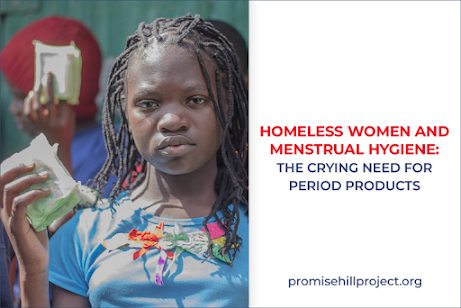Access to Feminine Hygiene Products For the Homeless
Homelessness is a challenge faced by over 582,000 Americans all across the U.S. This is one of the biggest problems that we face in our world today. But what about feminine products? This is a problem that not a lot of people are talking about let alone doing anything about and here are some facts about this devastating issue
Here are 8 facts that you might not know!
1. Broad Impact: The issue of access to feminine hygiene products for homeless individuals is not limited to women; it affects both men and women, as well as everyone in the homeless person's life who lacks access to these products.
2. Health Hazards: The lack of access to proper feminine hygiene products leads to health hazards such as urinary tract infections, yeast infections, and other general infections. The use of makeshift products, often unsanitary, exacerbates these health risks.
3. Birth Control Challenges: Homeless mothers face challenges in birth control, with only 29% planning the birth of their first child. Unplanned pregnancies are a significant concern, and access to feminine hygiene products could contribute to better family planning.
4. Emotional and Psychological Effects: Homeless women experience emotional and psychological effects due to the challenges of menstruation without proper products. This includes increased stress, vulnerability, irritability, and symptoms of low mood, anxiety, and depression.
5. Barriers to Solutions: Barriers to addressing this issue include the complexity of distributing feminine products to homeless individuals, limitations of existing organizations, and the financial constraints of homeless women.
6. Organizations Addressing the Issue: Organizations like Helping Women Period (HWP) and Seattle Towers of Tampons and Pyramids of Pads work towards supplying free pads, tampons, and other feminine products to homeless individuals. These organizations rely on donations to provide these essential items.
7. Long-term Effects: Poor feminine hygiene can lead to long-term effects, including potential health complications during childbirth, impacting both the mother and the newborn.
8. Overall Impact on Well-being: Access to feminine products is crucial for homeless women's overall well-being, potentially reducing health risks, preventing emotional distress, and improving the quality of life for this vulnerable population.



Comments
Post a Comment